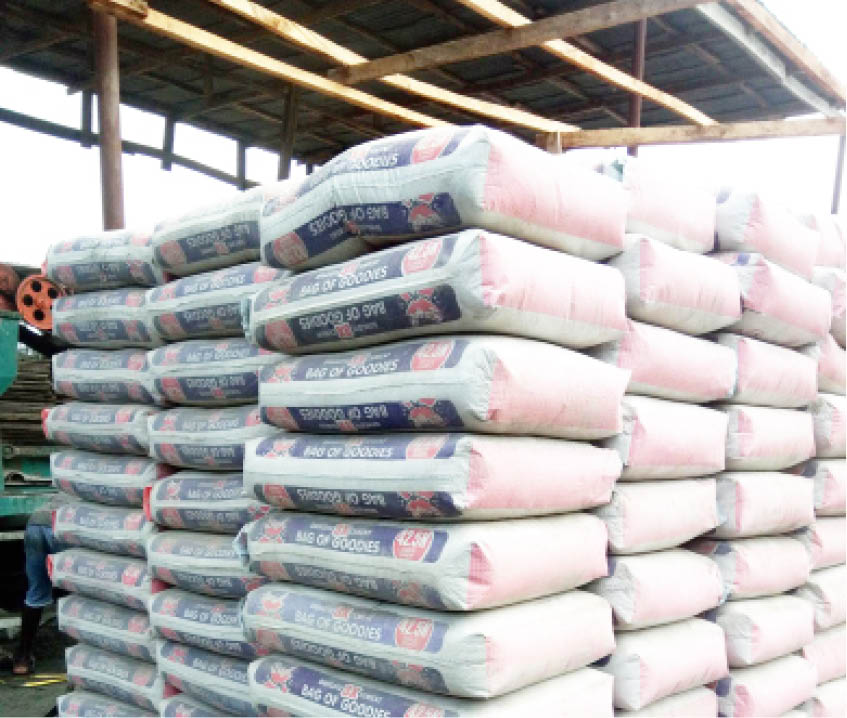Cement Cost In Nigeria: Understanding The Pricing Landscape
Cement plays a crucial role in Nigeria's construction industry, serving as a primary material for building infrastructure and housing projects across the nation. With the ongoing growth in urbanization and real estate development, the demand for cement has surged, leading to fluctuations in its prices. Understanding the cement cost in Nigeria is essential for builders, contractors, and homeowners alike, as it directly impacts project budgets and timelines. In this article, we will delve into the various factors influencing cement prices, current market trends, and how consumers can navigate the evolving landscape of cement costs.
The cost of cement in Nigeria is not static; it is affected by multiple variables, including production costs, transportation expenses, and market demand. Furthermore, the Nigerian economy, which is influenced by factors such as inflation, exchange rates, and government policies, also plays a significant role in determining the price of cement. Consequently, obtaining an accurate gauge of cement costs is paramount for anyone involved in the construction sector.
In this comprehensive guide, we will explore the cement cost in Nigeria, providing insights into its historical trends, current pricing structures, and predictions for future developments. This information will equip readers with the knowledge needed to make informed decisions regarding their construction needs while considering the financial implications of cement purchases.
What Factors Influence Cement Cost in Nigeria?
The cement cost in Nigeria is influenced by a variety of factors, which can be broadly categorized into production-related, economic, and logistical aspects. Understanding these elements can provide clarity on why prices fluctuate.
Production Costs
One of the primary drivers of cement pricing is the cost of production, which includes:
- Raw Materials: The availability and cost of limestone, clay, and gypsum can significantly affect cement prices.
- Energy Costs: Cement production is energy-intensive, and fluctuations in energy prices can result in increased production costs.
- Labor Costs: Wage rates and labor availability also play a role in determining overall production expenses.
How Does Economic Stability Affect Cement Prices?
The economic environment in Nigeria is volatile, with factors such as inflation and currency fluctuations impacting the cost of cement. A stable economy generally leads to predictable pricing, while economic instability can cause sudden price hikes. Key economic indicators to consider include:
- Inflation rates
- Exchange rates
- Government monetary policies
What is the Current Market Price for Cement in Nigeria?
As of the latest reports, the current average cost of cement in Nigeria hovers around ₦4,000 to ₦5,500 per bag, depending on the region and brand. However, prices can vary significantly based on geographic location, brand reputation, and purchasing volume. For example:
- In urban areas, prices may be higher due to increased demand.
- Remote locations may face higher transportation costs, resulting in elevated prices.
How Can Consumers Get the Best Prices on Cement?
Consumers can adopt several strategies to secure the best possible prices for cement, including:
- Buying in bulk to take advantage of discounts.
- Comparing prices from different suppliers.
- Staying informed about market trends and price changes.
Are There Regional Price Variations for Cement in Nigeria?
Yes, there are substantial regional variations in cement prices across Nigeria. Factors contributing to these variations include:
- Proximity to manufacturing plants
- Transportation infrastructure
- Local demand and competition among suppliers
What Are the Predictions for Future Cement Costs in Nigeria?
Looking ahead, the cost of cement in Nigeria is likely to be influenced by several trends, such as:
- Continued urbanization and infrastructure development.
- Government policies aimed at stabilizing the economy and the construction sector.
- Global market trends affecting raw material prices.
Conclusion: Navigating the Cement Cost Landscape in Nigeria
In conclusion, understanding the cement cost in Nigeria is essential for anyone involved in construction or real estate development. By staying informed about the factors that influence pricing, consumers can make more informed purchasing decisions and better manage their project budgets. As the market continues to evolve, keeping an eye on economic indicators and regional price variations will be crucial for navigating the complexities of cement costs in Nigeria.
Tony Elumelu: A Deep Dive Into His Net Worth And Business Acumen
Unveiling The Relationship Status Of Mattie Westbrouck: Is He Married?
Heartwarming Quotes From Uncle To Niece: A Special Bond


